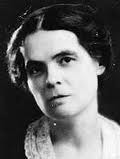A Quote by Gautama Buddha
"Existence is sorrow." Understand, and go beyond sorrow. This is the way of brightness.
Quote Topics
Related Quotes
Behind joy and laughter there may be a temperament, coarse, hard and callous. But behind sorrow there is always sorrow. Pain, unlike pleasure, wears no mask. ... For this reason there is no truth comparable to sorrow. There are times when sorrow seems to me to be the only truth. Other things may be illusions of the eye or the appetite, made to blind the one and cloy the other, but out of sorrow have the worlds been built, and at the birth of a child or a star there is pain.
Easy to see that naught save sorrow could bring a man to such a view of things. And yet a sorrow for which there can be no help is no sorrow. It is some dark sister traveling in sorrow's clothing. Men do not turn from God so easily you see. Not so easily. Deep in each man is the knowledge that something knows of his existence. Something knows, and cannot be fled nor hid from. To imagine otherwise is to imagine the unspeakable. It was never that this man ceased to believe in God. No. It was rather that he came to believe terrible things of Him.
Recently, one friend asked me, "How can I force myself to smile when I am filled with sorrow? It isn't natural." I told her she must be able to smile to her sorrow, because we are more than our sorrow. A human being is like a television set with millions of channels. If we turn the Buddha on, we are the Buddha. If we turn sorrow on then we are sorrow. If we turn a smile on, we really are the smile. We can not let just one channel dominate us. We have the seed of everything in us, and we have to seize the situation in our hand, to recover our own sovereignty.
You ask if there is no doctrine of sorrow in my philosophy. Of acute sorrow I suppose that I know comparatively little. My saddestand most genuine sorrows are apt to be but transient regrets. The place of sorrow is supplied, perchance, by a certain hard and proportionately barren indifference. I am of kin to the sod, and partake of its dull patience,--in winter expecting the sun of spring.
I will trust Him. Whatever, wherever I am, I can never be thrown away. If I am in sickness, my sickness may serve Him; in perplexity, my perplexity may serve Him; if I am in sorrow, my sorrow may serve Him. My sickness, or perplexity, or sorrow may be necessary causes of some great end, which is quite beyond us. He does nothing in vain.





























